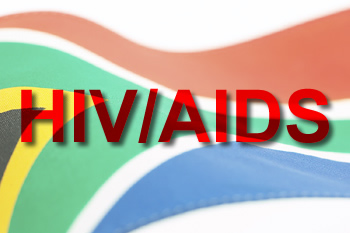Jul 12 2005
New figures from the South African Department of Health say more than 6.5 million of the country's 47 million people may now be HIV-positive.

This figure is much more than previous estimates and is very likely to re-ignite debate on the actual extent of the country's HIV/AIDS pandemic.
According to the Health Department, which has released a 2004 study of women at antenatal clinics, the results indicate that between 6.29 and 6.57 million South Africans now carry the HIV virus against 5.6 million at the end of 2003.
These figures are a stark contradiction of those released in a May study by Statistics South Africa, the state statistical agency, which estimated that about 4.5 million South Africans were infected with HIV.
This figure now places South Africa behind India as the country worst hit by the global pandemic.
The data from the antenatal clinics, where pregnant women have their blood tested, form the basis for most estimates of HIV prevalence in Africa, which is home to more than 25 million of the estimated 39 million people infected with HIV worldwide.
Some African countries are however critical of the method of data collection, and say the figures exaggerate the spread of HIV/AIDS on the continent.
Last year a debate flared up after a study appeared to show that U.N. estimates of AIDS prevalence in Kenya were inflated; the study cut the projected number of Kenyan adult HIV infections to 1 million from as many as 3 million.
However UNAIDS, the United Nations AIDS agency, dismissed that study's conclusions as unfounded, saying differences in methodology could account for different numbers and stood by its original forecasts.
President Thabo Mbeki and South African officials, have also questioned the reported severity of the HIV/AIDS crisis, which has infuriated activists who blame the government's slow response for the increasing numbers of AIDS deaths in the country.
The Department of Health study says that 29.5 percent of the pregnant women surveyed nationwide were HIV positive, up from 27.9 percent in 2003.
It says in KwaZulu-Natal, the worst affected province in the country, the HIV prevalence rate among pregnant women was more than 40 percent.
The department does however acknowledge that its latest estimates for national prevalence, assumes that HIV prevalence among all pregnant women is the same as that for those visiting antenatal clinics, and that HIV prevalence for all women between the ages of 15-49 is the same as that in pregnant women.
Interestingly Professor Rob Dorrington, head of the Centre for Actuarial Science at the University of Cape Town, also says the department's new estimates were "undoubtedly too high", but he adds that mixed messages from the government were confusing and complicating South Africa's response to HIV/AIDS.